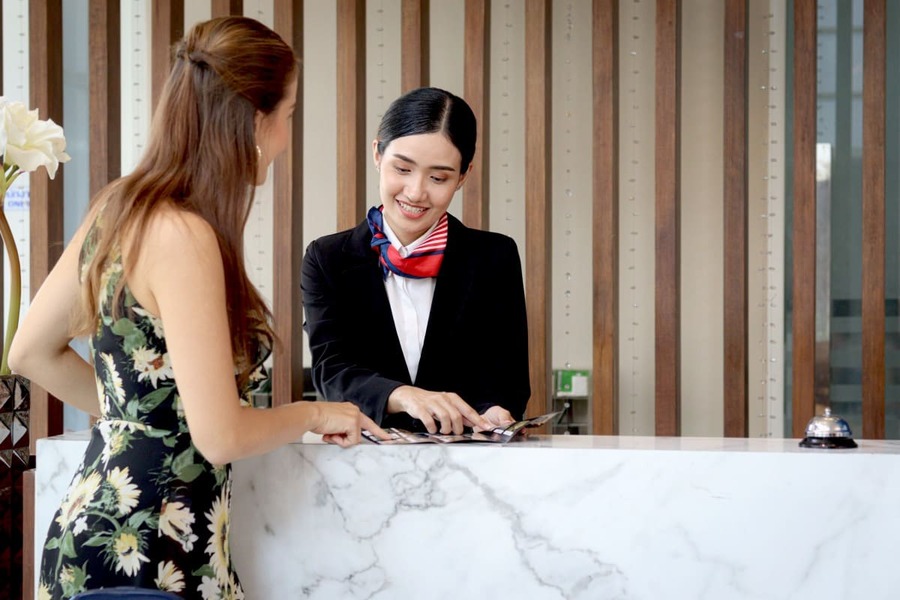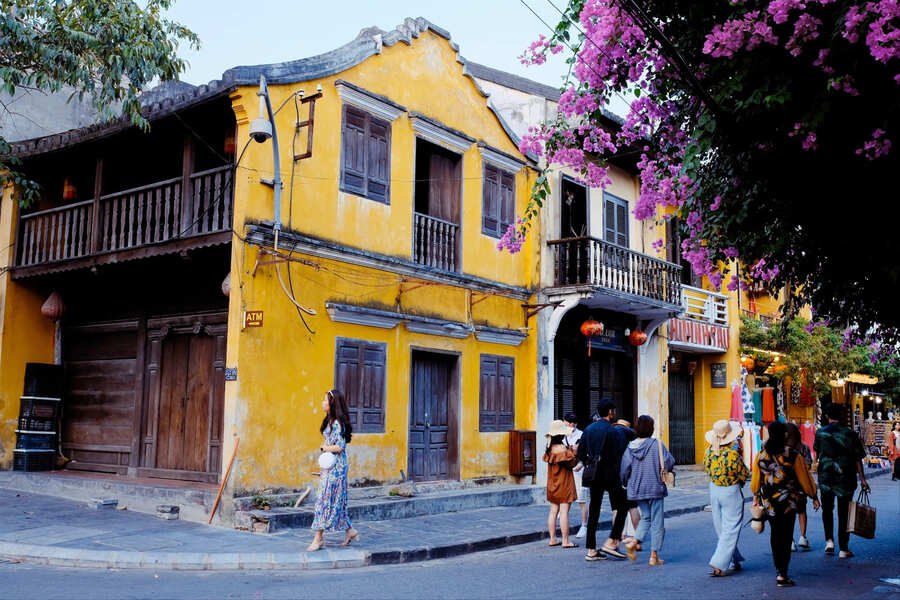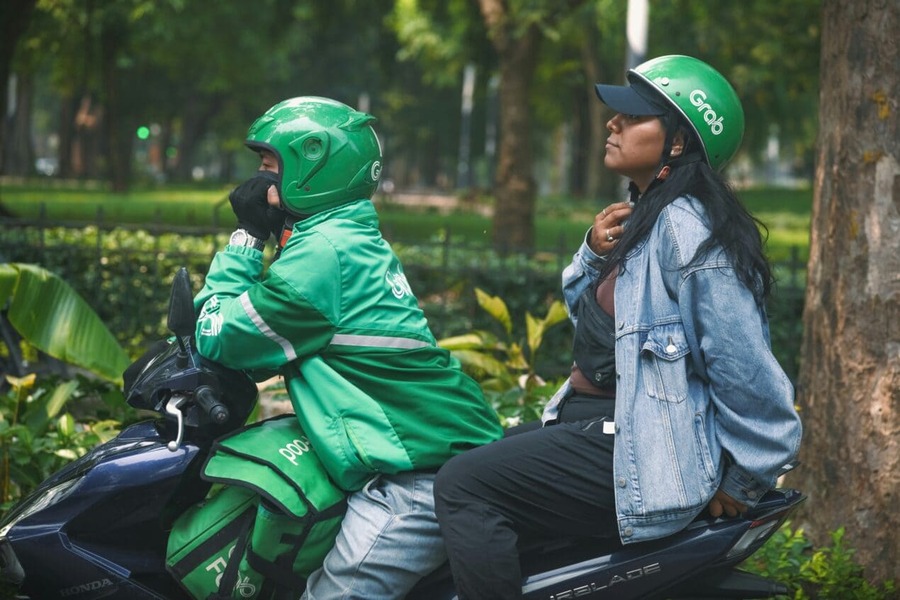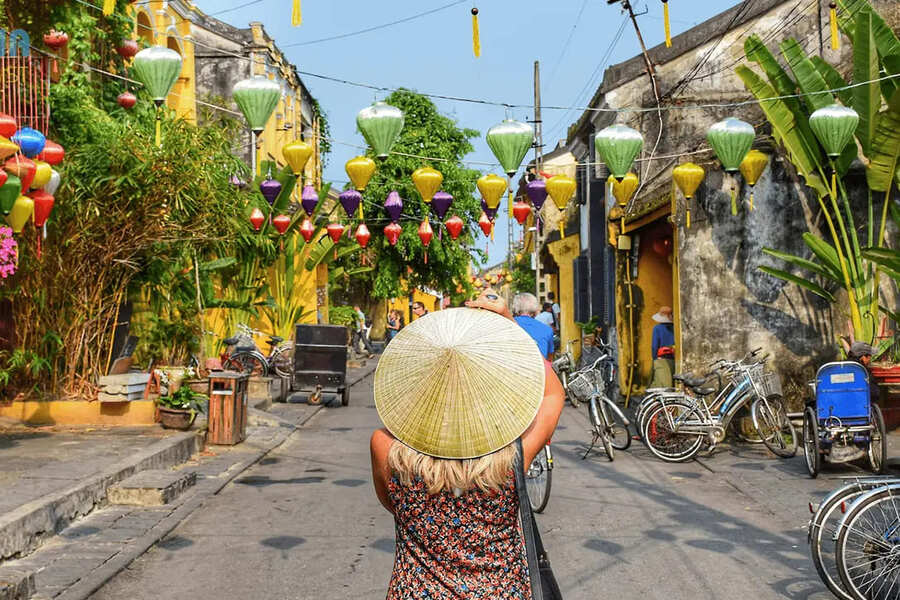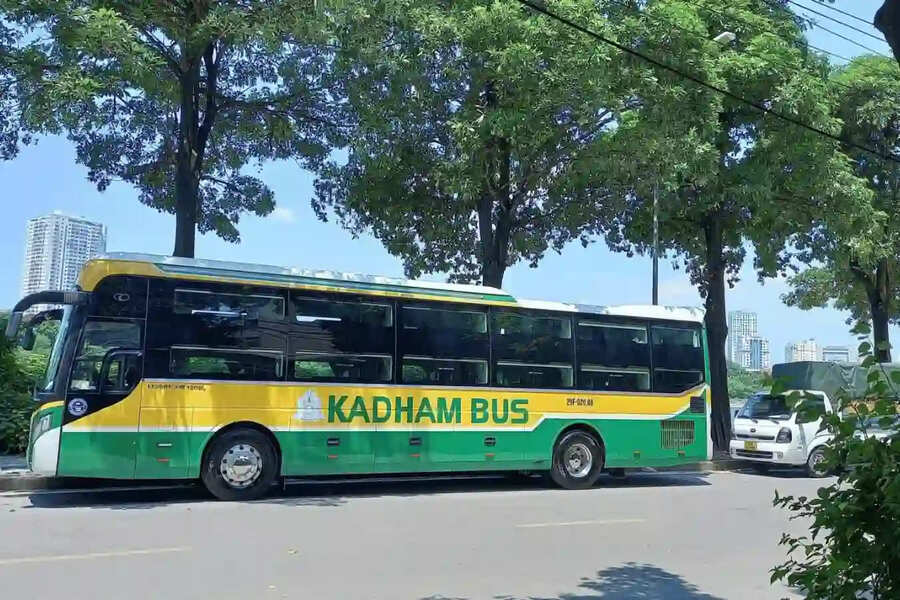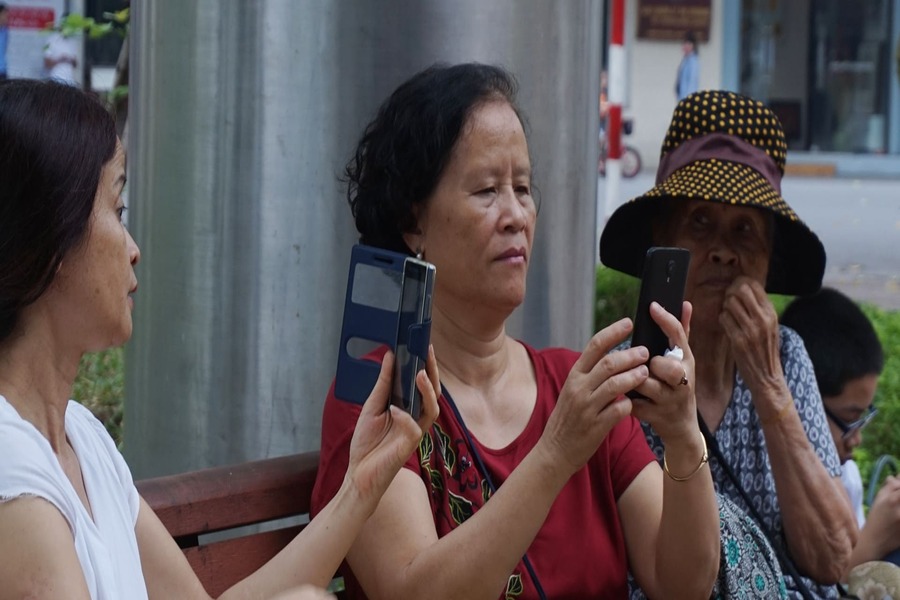SEO Description: Planning a solo trip to Vietnam in 2025? Vietnam is a safe and vibrant destination! Discover tips to avoid common Vietnam travel scams like petty theft and taxi scams while exploring Hanoi, Ho Chi Minh City, and beyond. Download our free travel checklist from Go Vietnam Tours for a worry-free adventure!
Vietnam is a breathtakingly beautiful and welcoming destination, renowned for its vibrant culture, stunning landscapes, and warm hospitality, making it a top choice for a solo trip to Vietnam. With over 18 million visitors annually, as reported by the Vietnam National Administration of Tourism, Vietnam is incredibly safe for travelers, and with a few simple precautions, you can enjoy its wonders worry-free. From the charming streets of Hanoi to the bustling markets of Ho Chi Minh City, a Vietnam travel adventure awaits. This guide offers practical Vietnam travel tips to navigate minor challenges like petty theft, currency exchange scams, and taxi scams, ensuring a seamless experience.
Vietnam Is Safe for Travelers
Vietnam ranks among Southeast Asia’s safest destinations, with low crime rates and friendly locals eager to share their culture. Whether you’re planning Hanoi solo travel, Ho Chi Minh City solo travel, or a Vietnam solo travel itinerary, here’s why Vietnam is a must-visit in 2025:
- Welcoming Culture: Locals are known for their hospitality, often helping travelers with directions or sharing a smile over street food.
- Affordability: Meals cost $1-$5, mid-range hotels $20-$40/night, and tours $10-$50, making solo travel Vietnam budget-friendly.
- Diverse Experiences: From Ha Long Bay’s emerald waters to Hoi An’s lantern-lit alleys, Vietnam offers endless adventures.
- Safety for Solo Travelers: Vietnam solo female travel is popular due to safe cities and active traveler communities.
While Vietnam is safe, being aware of minor pitfalls like petty theft or taxi scams enhances your experience. This guide provides positive, practical advice to avoid Vietnam travel scams and enjoy your journey.
Essential Vietnam Travel Tips to Avoid Common Scams in Vietnam
Vietnam’s safety and charm make it a joy to explore, and knowing a few Vietnam travel tips ensures you stay protected. Below, we outline common scams, their signs, how to avoid them, and expert advice, focusing on Hanoi travel scams, Ho Chi Minh City travel scams, and more.
Petty Theft: Staying Secure in Bustling Areas
Scam Description: In busy spots like Hanoi’s Old Quarter or Ho Chi Minh City’s Ben Thanh Market, petty theft (e.g., pickpocketing or bag snatching) can occur, especially in crowded markets or near curbs where motorbikes pass.
Signs to Recognize:
- Someone bumps into you or offers unsolicited help, distracting you while another person reaches for your belongings.
- Motorbike riders approaching closely while you’re walking near roads, targeting bags or phones.
How to Avoid:
- Use a money belt or crossbody bag with a secure zipper, worn across your chest.
- Keep only small amounts of cash (e.g., 500,000 VND, ~$20) in your pocket for daily use.
- Store valuables like passports and extra cash in your hotel safe.
- Avoid flashing expensive items like phones or jewelry in crowded areas.
- Walk away from curbs in Ho Chi Minh City to deter motorbike snatchers.
Travel Tip: Join a guided tour with Go Vietnam Tours to explore markets safely with a local guide. Download our free travel checklist for packing tips to secure your belongings.
Currency Exchange Scams: Getting Fair Rates
Scam Description: Some unofficial exchange kiosks, especially at airports or tourist areas, offer poor exchange rates or, rarely, outdated or counterfeit Vietnamese dong notes. The dong’s large denominations (e.g., 10,000 VND vs. 200,000 VND) can cause confusion.
Signs to Recognize:
- Kiosks advertising “no commission” but offering rates far below market value (check XE.com for current rates).
- Notes that feel flimsy, lack watermarks, or stay wrinkled when crumpled.
How to Avoid:
- Exchange money at reputable banks like Vietcombank, Agribank, or Techcombank, which offer fair rates. Check their websites for rates in advance.
- Inspect notes for security features like watermarks, holograms, and color-shifting ink.
- Use international debit/credit cards (Visa, Mastercard) in cities like Hanoi and Ho Chi Minh City to minimize cash exchanges.
- Exchange only small amounts daily (e.g., $20-$50) to reduce risk.
Travel Tip: For Hanoi travel scams, visit Vietcombank in the Old Quarter; for Ho Chi Minh City travel scams, use banks in District 1. Download our free travel tips PDF at Go Vietnam Tours for currency exchange guidance.
Money-Switching Scams: Handling Vietnamese Dong
Scam Description: The similarity between dong notes (e.g., blue 20,000 VND and 500,000 VND) can lead to money-switching scams, where vendors or drivers swap your high-value note for a lower one, claiming you underpaid.
Signs to Recognize:
- Quick hand movements during payment, especially with taxi drivers or street vendors.
- Claims of underpayment after you hand over a large bill.
How to Avoid:
- Familiarize yourself with Vietnamese dong notes (10,000, 20,000, 200,000, 500,000 VND) before your trip.
- Pay with small bills or exact change. Break large notes at trusted businesses like Circle K or restaurants.
- Count change carefully before leaving the counter and confirm the note you’re handing over.
- Store high-denomination notes separately to avoid confusion.
Travel Tip: In Hanoi travel scams, be cautious with Old Quarter vendors; in Ho Chi Minh City travel scams, watch taxi payments. Download our free travel checklist for a dong denomination guide.
Taxi Scams: Ensuring Fair Rides
Scam Description: At airports, train stations, or tourist sites, some taxis may use rigged meters, claim meters are broken, or take longer routes to inflate fares. Fake taxis may mimic reputable companies like Mai Linh (green) or Vinasun (white).
Signs to Recognize:
- Taxis without clear branding or meters that jump rapidly.
- Drivers showing a “VIP” Grab price or refusing to use the meter.
- Unusually long routes to familiar destinations (e.g., Hanoi airport to Old Quarter).
How to Avoid:
- Book taxis via Grab, Be, or Xanh SM (electric vehicles) for transparent fares ($1-$3 for short rides).
- Use reputable companies like Mai Linh or Vinasun, identifiable by their green or white colors.
- Confirm the meter is running and matches typical rates (e.g., ~$10-$15 from Hanoi airport to Old Quarter).
- Track your route with Google Maps to ensure the driver sticks to the shortest path.
- Pre-book airport transfers with Go Vietnam Tours for fixed rates.
Travel Tip: Avoid unofficial taxis at Hanoi’s Noi Bai or Ho Chi Minh City’s Tan Son Nhat airports to prevent Hanoi travel scams or Ho Chi Minh City travel scams. Download our free travel tips PDF for safe transport options.
Cyclo and Motorbike Taxi Scams: Enjoying Authentic Rides
Scam Description: Cyclos (rickshaws) and motorbike taxis (xe om) in Hanoi, Hoi An, or Ho Chi Minh City may quote a low fare (e.g., 50,000 VND) but demand more (e.g., 500,000 VND) after the ride, claiming a misunderstanding.
Signs to Recognize:
- Vague fare agreements or drivers insisting you misheard the price.
- Unexpected detours to remote areas with demands for extra fees.
How to Avoid:
- Agree on the fare clearly and confirm it verbally or in writing before the ride.
- Use Grab for motorbike taxis to lock in fares and track routes.
- Monitor your route with a map app to avoid detours.
- Book cyclo tours through Go Vietnam Tours for fixed prices and guided experiences in Hanoi’s Old Quarter or Hoi An.
Travel Tip: For a safe cyclo ride, book a guided tour with Go Vietnam Tours to avoid Hanoi travel scams or Ho Chi Minh City travel scams.
Local Vendor Scams: Navigating Markets and Photo Ops
Scam Description: In Hanoi’s Old Quarter or Ho Chi Minh City’s Ben Thanh Market, vendors with fruit baskets or conical hats may offer “free” photos, then demand payment (e.g., 100,000 VND, ~$4). Others may overcharge for snacks like banh ran (glutinous rice balls).
Signs to Recognize:
- Vendors encouraging photos or preparing food (e.g., coconuts) without your request.
- Aggressive demands for payment after a photo or purchase.
How to Avoid:
- Politely decline photo offers with a firm “no” and a hand gesture. Avoid eye contact to deter persistence.
- Check prices before buying food or souvenirs. Bargain if prices seem high (e.g., banh ran should be ~20,000 VND).
- Pay with small bills to avoid showing large denominations.
- Shop at fixed-price stores (e.g., Vincom Center in HCMC) for hassle-free purchases.
Travel Tip: Join a street food tour with Go Vietnam Tours to enjoy authentic flavors safely and avoid Hanoi travel scams or Ho Chi Minh City travel scams. Download our free travel checklist for market navigation tips.
Booking with Reputable Tour Operators
Unverified tour operators may offer cheap deals but deliver subpar experiences, such as low-quality Ha Long Bay cruises or unlicensed guides pushing commission-based shops.
Signs to Recognize:
- Suspiciously low prices compared to market rates.
- Vague itineraries or pressure to book immediately.
How to Avoid:
- Verify operators on the Vietnam National Administration of Tourism (VNAT) website using their license number.
- Book with trusted companies like Go Vietnam Tours, which uses licensed guides and maintains a government-verified insurance fund.
- Check reviews on TripAdvisor or GetYourGuide for recent traveler feedback.
Travel Tip: For safe Ha Long Bay or Mekong Delta tours, book with Go Vietnam Tours to avoid Vietnam travel scams. Download our free travel tips PDF for choosing reliable operators.
Safe Accommodation Choices
Some hotels use misleading photos or fake reviews, delivering substandard rooms or adding unexpected fees at checkout.
Signs to Recognize:
- Overly polished online photos that don’t match reviews.
- Unexpected charges for services not used.
How to Avoid:
- Research hotels on Agoda, Booking.com, and travel forums for honest reviews.
- Contact hotels directly to confirm terms before booking.
- Book through Go Vietnam Tours for vetted accommodations meeting safety and quality standards.
- Document your room’s condition with photos upon arrival.
Travel Tip: Choose hotels in Hanoi’s Old Quarter or Ho Chi Minh City’s District 1 with Go Vietnam Tours to avoid Hanoi travel scams or Ho Chi Minh City travel scams.
SIM Card Purchases for Connectivity
Some vendors sell SIM cards with expired validity or inflated prices, especially at airports or small shops.
Signs to Recognize:
- “30-day” plans that stop working after a few days.
- Prices significantly higher than official telecom rates (e.g., $15 for 5GB vs. $5-$10).
How to Avoid:
- Buy SIMs from Viettel, Mobifone, or Vinaphone stores ($5-$10 for 5GB).
- Use an eSIM (e.g., Airalo) for short trips to avoid markups.
- Check the SIM’s activation date before purchase.
Travel Tip: Purchase SIMs at official counters in Hanoi or Ho Chi Minh City airports to avoid Vietnam travel scams. Download our free travel checklist for connectivity tips.
What to Do If You Are Being Scammed in Vietnam
If you face a minor issue during your Vietnam travel, stay calm and follow these steps:
- Stay Positive: Most issues are minor and resolvable. Keep a friendly demeanor to de-escalate situations.
- Assess the Issue: Determine if it’s a misunderstanding (e.g., wrong change) or a deliberate scam.
- Gather Evidence: Keep receipts or take photos to support your case.
- Negotiate Politely: For small overcharges, calmly request clarification, citing agreed prices or menus.
- Seek Help: Contact your tour operator (e.g., Go Vietnam Tours), hotel staff, or tourist police (Hanoi: +84 24 3926 2812; HCMC: +84 28 3829 7643) for assistance.
- Inform Your Bank: For card-related issues, notify your bank immediately.
- Document Details: Record interactions for insurance claims or future reference.
Practical Vietnam Travel Tips for 2025 to Avoid Scams in Vietnam
To make your solo trip to Vietnam safe and enjoyable, follow these tips:
General Safety Tips
- Secure Valuables: Use a money belt and keep cash in multiple places. Store passports in hotel safes.
- Stay Connected: Get a Viettel SIM ($5-$10 for 5GB) or eSIM for navigation and emergencies.
- Learn Basic Phrases: Use “khong” (no) or “bao nhieu” (how much) to clarify prices.
- Use Apps: Grab, Google Maps, and XE Currency ensure safe transport and fair exchanges.
Budgeting for a Safe Trip
A 10-day mid-range trip costs $400-$700:
- Accommodation: $100-$200 (hostels $5-$15/night, hotels $20-$40/night).
- Transport: $100-$150 (flights, Grab rides, buses).
- Activities: $100-$200 (tours, entry fees).
- Food: $50-$100 (street food, restaurants).
- Miscellaneous: $50-$100 (SIM, souvenirs).
Travel Tip: Book with Go Vietnam Tours for scam-free tours and accommodations.
Sustainable Travel
- Choose eco-friendly operators like Go Vietnam Tours, offering electric vehicle tours.
- Support local artisans by buying souvenirs from reputable shops (e.g., Hoi An’s Old Town).
- Use reusable water bottles (e.g., LifeStraw) to reduce plastic waste.
With No Scam, Vietnam Is Worth Visiting in 2025
Vietnam’s stunning landscapes, rich history, and welcoming locals far outweigh minor challenges. From Ha Long Bay’s UNESCO-listed karsts to Hanoi’s vibrant markets, a solo trip to Vietnam offers unforgettable experiences. By following these Vietnam travel tips, you’ll navigate Hanoi travel scams and Ho Chi Minh City travel scams with ease, focusing on the joy of discovery. With Go Vietnam Tours, your adventure is backed by licensed guides and trusted services.
Vietnam is a safe, vibrant, and affordable destination for solo travel Vietnam in 2025. By staying informed about minor pitfalls like petty theft or taxi scams, you can explore Hanoi, Ho Chi Minh City, and beyond with confidence. At Go Vietnam Tours, we love our country and want you to enjoy it safely! Download our free travel checklist or travel tips PDF to plan your Vietnam solo travel itinerary and experience the magic of Vietnam worry-free. Ready to start your adventure? Contact Go Vietnam Tours or share your travel plans in the comments below!

